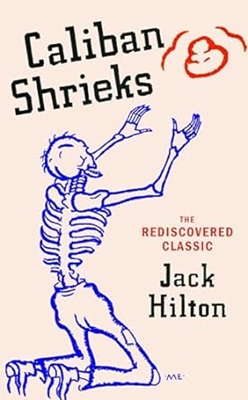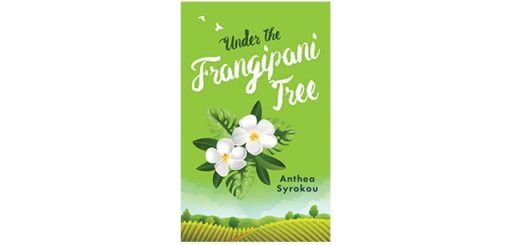Caliban Shrieks by Jack Hilton – Book Review
Caliban Shrieks by Jack Hilton – Book Review
- Author – Jack Hilton
- Publisher – Vintage Classics
- Release Date – 7th March 2024
- Pages – 208
- ISBN 13 – 978-1784878757
- Format – ebook, hardcover
- Star Rating – 4
This post contains affiliate links.
Synopsis
A lyrical tour of life as a young working-class man born into the first days of the 20th century, Caliban Shrieks is a lost masterpiece of 1930s British literature.
WITH NEW INTRODUCTIONS BY ANDREW McMILLAN AND JACK CHADWICK
Caliban Shrieks’ narrator went from a childhood of poverty, yet joy and freedom, to the punishing grind of factory life and the idiocy of being sent blindly into war. He was turned out of the army a vagrant – seeing England from city to city, county to county – before being thrust back into an uncertain cycle of working life as it unfolded in the post-war years.
A story of men and women lost, wandering – and angrily dreaming of a better, fairer England, Hilton’s autobiographical novel is a bold modernist retelling of the myth of how we find ourselves disenfranchised from the world and sold into a slavery of our making.
Lost to time, only to be rediscovered again in the Salford’s Working Class Movement Library in 2022, Caliban Shrieks is a working-class masterpiece of British literature, and continues to speak as brash and impassioned as it did on its first rave publication in 1935.
Review by Clive
Firstly congratulations to Jack Chadwick who found a copy of the original book in a Salford library following which a search was made for the current copyright owners to enable this 2024 edition to be published. This consists of 162 pages of the original text, Jack Hilton’s original preface following introductions by Andrew McMillan and Jack Chadwick. The hardback has a plain red cover with a dust sheet bearing Hilton’s sketch of a skeletal character on his knees.
Caliban Shrieks is semi-autobiographical, broadly following the first thirty years of Hilton’s life. The Caliban referred to in the title is taken from the enslaved character in Shakespeare’s The Tempest who Hilton compares himself to. This is one of several references in the book to the bard’s characters showing that despite his poor background Hilton had found the time and opportunities to read, presumably thanks to our public libraries.
Following the publishing of Caliban Shrieks, Hilton gained a scholarship at Ruskin College but prior to that he had little formal education beyond the local school which was part time from the age of eleven when he also worked in the cotton mill until he left school for good at fourteen. This lack of education is reflected in the writing style which includes many colloquial terms; some have definitions in brackets, many other do not. What is clear is that the book was written from the heart.
Along with the descriptive side of his life we have his opinions which very much follow the socialist views of the time. He is critical of most organisations including the government, the military, the judiciary and big business. In the final two chapters of Caliban Shrieks his comments become closer to rants when he expresses his strong opinions on the various socialist political parties and the trades unions. Only the Co-operative Societies get any affection. Despite his criticisms, Hilton has little to suggest in the way of change or improvements. Like Caliban, he is trapped and must accept his fate.
Is Caliban Shrieks a classic? As an academic exercise I am pleased that the book can be available to all and it has been written by someone who genuinely struggled with life in those difficult times. Hilton was close to George Orwell who had similar views on society and who reviewed Caliban Shrieks for The Adelphi literary journal. The contrast between the two authors being their backgrounds; Hilton from poverty, Orwell from privilege including an Eton scholarship.
You may find Caliban Shrieks depressing but if you read it I don’t think you will ever forget it. I have awarded four stars.
Purchase Online:
Jack Hilton
Jack Hilton was born in the opening days of 1900 in Oldham, Lancashire. He served in the army during the First World War and, after a period of homelessness and working odd jobs, became an active member of Rochdale’s Worker’s Rights movement, where his rallying speeches led to a court-order banning him from further speechwriting. Instead, Hilton turned to prose writing as an outlet, using stints on the dole to hone his immense literary gift and produce his autobiographical novel, Caliban Shrieks.
A chance encounter with an editor in 1934 led to Hilton’s discovery and paved the way for a short, but dramatic, writing career that included the publication of five books – including Caliban Shrieks – and greatly influenced the course of political writing in British literature. In 1950, Hilton retired from writing and returned to his first trade, plastering. He died in 1983. The publication rights to Hilton’s works were long considered lost until their discovery in 2022 allowed for the republication of Caliban Shrieks.






